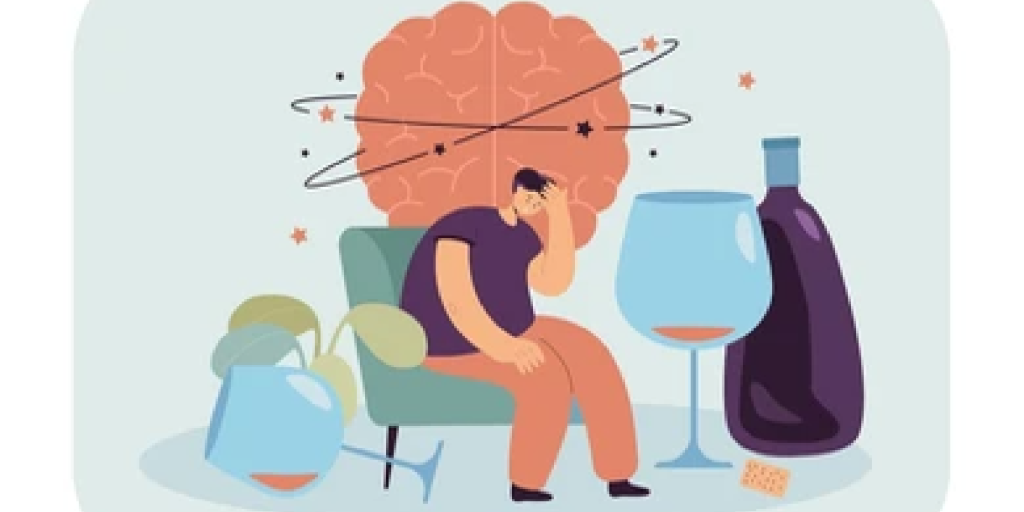
From Springbrook Hospital –
It’s normal to experience moments of sadness every once in a while. But when those feelings persist and begin to impact your ability to work, socialize, or enjoy hobbies, it could actually be a symptom of a very common mental health disorder: depression. This is especially true if you are also struggling with addiction. In fact, depression and addiction often go hand-in-hand.
But what exactly is the connection between depression and addiction? Below, we review how these two disorders are linked so that you can better understand why you might be struggling with one on top of the other. Most importantly, we’ll look at your treatment options for depression and addiction to ensure that you find your way back to happiness once again.
Table of Contents
Are Depression and Addiction Connected?

People with depression don’t always struggle with a substance use disorder. Similarly, people who have a substance use disorder don’t always have depression or another mental illness. However, experts have discovered that depression and addiction are undoubtedly connected. They are known as co-occurring disorders, which means that they frequently happen at the same time.
Studies show that over 30 percent of people who struggle with a substance use disorder also have symptoms of depression. Furthermore, people who have major depression often experience more challenges maintaining addiction recovery than people who do not have depression as a co-occurring disorder.
It’s no coincidence that depression and addiction go hand-in-hand. Research has revealed that severe depressive episodes and symptoms can influence somebody’s chances of developing a substance use disorder, and vice versa. And it’s not just depression that’s connected to addiction—other mood disorders, such as bipolar disorder, are also commonly co-occurring issues. But why is this the case? Does one condition cause the other?
Does Depression Cause Addiction?
In short, the answer to this would be “no.” Depression doesn’t directly cause somebody to develop a substance use disorder. The same goes for any other mental health issue that co-occurs with substance use. That being said, experiencing the symptoms of depression without having the proper treatment in place can greatly increase the chances of somebody abusing drugs or alcohol.
Mood disorders like depression are challenging to cope with. This disorder ranges in severity and looks different for each person, but the symptoms of depression can include:
- Fatigue
- Body aches
- Sleeping too much or too little
- Decreased appetite
- Increased anxiety
- Loss of motivation
- Feelings of hopelessness
- Suicidal ideation
For many people with depression, when these symptoms arise, they aren’t sure what to do or where to go to find help. As a result, they try to handle the symptoms of depression on their own. However, depression isn’t something that typically fades away without intervention. According to the National Institute of Mental Health, approximately 65 percent of the millions of adults with depression in the United States require professional treatment to alleviate the symptoms.
Without treatment, people with depression are more likely to turn to drugs or alcohol as a way to block out the symptoms. Using these addictive substances might provide a distraction from the pain or might numb the sadness temporarily. But this is not a solution to the problem at hand.
Rather, using these substances will only exacerbate the long-term symptoms of mental health disorders. Research indicates that alcohol in particular can make depression symptoms more severe. This is because alcohol is a natural depressant, meaning that it suppresses the way the body’s central nervous system functions.
Of course, using drugs can also lead to mental health distress. In fact, some substances can even trigger serious depressive episodes or even episodes of psychosis. Moreover, any type of addiction causes a physical, emotional, and mental dependency on the substance. In essence, these substances can greatly influence the way that you think, feel, and behave. Your mental health and physical wellbeing becomes at risk.
So, what can be done about this connection between addiction and depression? Is it possible to get treatment for both?
How Can You Treat Depression and Addiction?

The best way to address co-occurring disorders like depression and addiction would be through dual diagnosis treatment. As the name suggests, dual diagnosis treatment looks at more than one condition at a time—in this case, treatment would be focused on depression and addiction. Certain addiction centers are able to offer this unique treatment in order for patients to get the most out of their care.
Springbrook Behavioral Hospital is one of these facilities. Our Eclipse Dual Diagnosis Program works to address all of the symptoms that come with mental health conditions as well as addiction to drugs or alcohol. Here, patients have the option to participate in residential treatment or partial hospitalization programming depending on the type of treatment plan that would work best for their needs.
Through this program, you will have the opportunity to address the symptoms of depression and addiction through services facilitated by mental health professionals. Some examples of these services include:
- One-on-one counseling
- Group sessions
- Family therapy
- Activity groups
- Psycho-educational focus groups
- Medication evaluation
With all of these treatment options, you will not only begin to feel better emotionally and physically, but you will also develop the skills needed to maintain your recovery. In therapy, you will create a toolbox of resources that you can refer back to in times of need after you have completed your treatment with us. This means that, even if your symptoms of depression return or even if there are moments where you feel the urge to use drugs or drink again, you will have the resources necessary to cope in healthier ways.
All of this goes to show that treatment for depression and addiction is possible. Now, where do you start?
What Are the Next Steps?
Finding the path toward recovery starts with communication. Please reach out to Springbrook Behavioral Hospital by calling 888-512-9802 or by filling out a confidential contact form with your information and questions. One of our admissions specialists will be on standby, ready to help you with the next steps. Know that your battle with depression and addiction can change with the right support and right treatment to back you up.
The post Depression and Addiction Treatment in Florida appeared first on Springbrook Hospital.
Source
Original Author: Springbook Hospital

